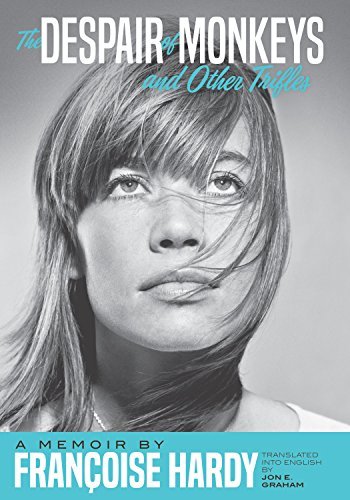What do you think?
Rate this book


“I was for a very long time passionately in love with her, as I’m sure she’s guessed. Every male in the world, and a number of females also were, and we all still are.” —David Bowie
“Françoise was the ultimate pin-up of most hip bedroom walls, and I know for a fact that Brian Jones and Mick Jagger, John Lennon, Paul McCartney, and many other pop stars were desperately interested in having Françoise Hardy become their girlfriend in some way.” —Malcolm McLaren
Françoise Hardy is best known in Europe for originating the famed “Yé-Yé” sound in pop music which began a cultural scene in the early 1960s. Her teenage success grew as she became a much-photographed fashion model and actress. Adored for her shy beauty and emotional songwriting, she sang hit songs in French, Italian, and German. In The Despair of Monkeys and Other Trifles, she bares her soul and tells the truth of her relationships, fears, and triumphs as well as the hard-won wisdom carved from a life well-lived.
This unusually-titled memoir has sold millions of copies in its French, German, Italian, and Spanish editions in recent years. This first English-language release is expertly translated by Jon E. Graham. The book contains dozens of images in addition to Hardy’s intimate recollections of her upbringing and career.
Françoise Hardy, an accomplished songwriter and lyricist also collaborated with accomplished songwriters such as Leonard Cohen, Serge Gainsbourg, and Patrick Modiano. Both her early pop work and later material in a complex and mature style helped generate a dedicated cult following. Both her husband, Jacques Dutronc, and son, Thomas Dutronc, are respected musicians in France.
334 pages, Kindle Edition
First published October 9, 2008